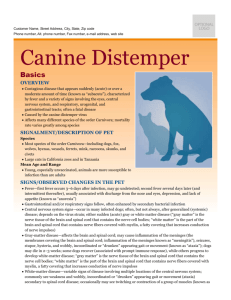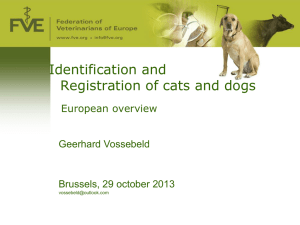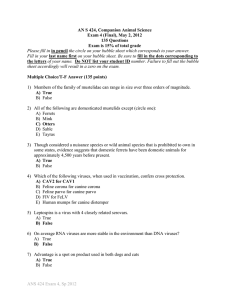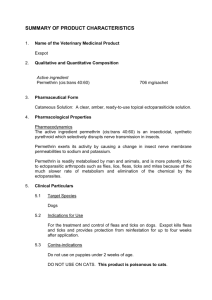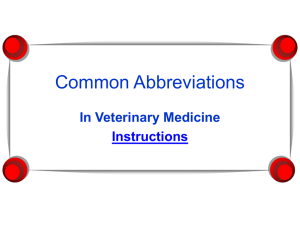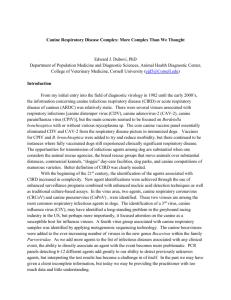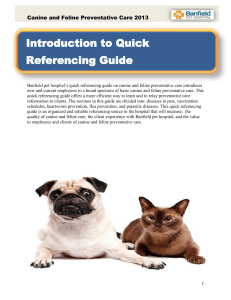CANINE - The Animal Hospital Of Largo
advertisement
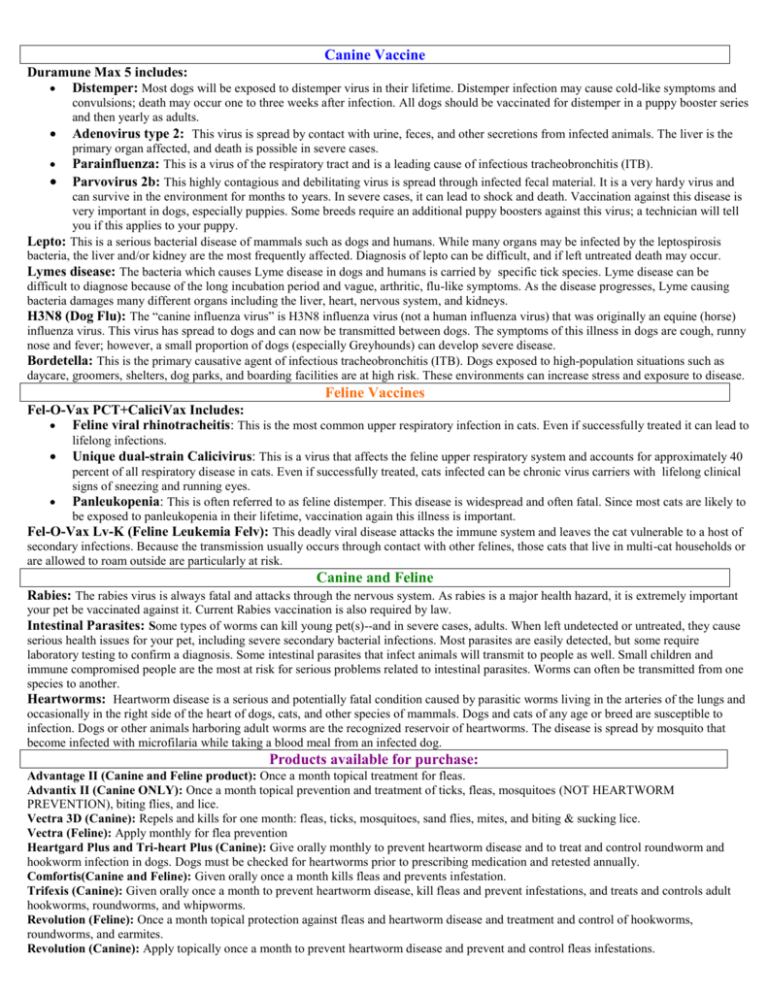
Canine Vaccine Duramune Max 5 includes: Distemper: Most dogs will be exposed to distemper virus in their lifetime. Distemper infection may cause cold-like symptoms and convulsions; death may occur one to three weeks after infection. All dogs should be vaccinated for distemper in a puppy booster series and then yearly as adults. Adenovirus type 2: This virus is spread by contact with urine, feces, and other secretions from infected animals. The liver is the primary organ affected, and death is possible in severe cases. Parainfluenza: This is a virus of the respiratory tract and is a leading cause of infectious tracheobronchitis (ITB). Parvovirus 2b: This highly contagious and debilitating virus is spread through infected fecal material. It is a very hardy virus and can survive in the environment for months to years. In severe cases, it can lead to shock and death. Vaccination against this disease is very important in dogs, especially puppies. Some breeds require an additional puppy boosters against this virus; a technician will tell you if this applies to your puppy. Lepto: This is a serious bacterial disease of mammals such as dogs and humans. While many organs may be infected by the leptospirosis bacteria, the liver and/or kidney are the most frequently affected. Diagnosis of lepto can be difficult, and if left untreated death may occur. Lymes disease: The bacteria which causes Lyme disease in dogs and humans is carried by specific tick species. Lyme disease can be difficult to diagnose because of the long incubation period and vague, arthritic, flu-like symptoms. As the disease progresses, Lyme causing bacteria damages many different organs including the liver, heart, nervous system, and kidneys. H3N8 (Dog Flu): The “canine influenza virus” is H3N8 influenza virus (not a human influenza virus) that was originally an equine (horse) influenza virus. This virus has spread to dogs and can now be transmitted between dogs. The symptoms of this illness in dogs are cough, runny nose and fever; however, a small proportion of dogs (especially Greyhounds) can develop severe disease. Bordetella: This is the primary causative agent of infectious tracheobronchitis (ITB). Dogs exposed to high-population situations such as daycare, groomers, shelters, dog parks, and boarding facilities are at high risk. These environments can increase stress and exposure to disease. Feline Vaccines Fel-O-Vax PCT+CaliciVax Includes: Feline viral rhinotracheitis: This is the most common upper respiratory infection in cats. Even if successfully treated it can lead to lifelong infections. Unique dual-strain Calicivirus: This is a virus that affects the feline upper respiratory system and accounts for approximately 40 percent of all respiratory disease in cats. Even if successfully treated, cats infected can be chronic virus carriers with lifelong clinical signs of sneezing and running eyes. Panleukopenia: This is often referred to as feline distemper. This disease is widespread and often fatal. Since most cats are likely to be exposed to panleukopenia in their lifetime, vaccination again this illness is important. Fel-O-Vax Lv-K (Feline Leukemia Felv): This deadly viral disease attacks the immune system and leaves the cat vulnerable to a host of secondary infections. Because the transmission usually occurs through contact with other felines, those cats that live in multi-cat households or are allowed to roam outside are particularly at risk. Canine and Feline Rabies: The rabies virus is always fatal and attacks through the nervous system. As rabies is a major health hazard, it is extremely important your pet be vaccinated against it. Current Rabies vaccination is also required by law. Intestinal Parasites: Some types of worms can kill young pet(s)--and in severe cases, adults. When left undetected or untreated, they cause serious health issues for your pet, including severe secondary bacterial infections. Most parasites are easily detected, but some require laboratory testing to confirm a diagnosis. Some intestinal parasites that infect animals will transmit to people as well. Small children and immune compromised people are the most at risk for serious problems related to intestinal parasites. Worms can often be transmitted from one species to another. Heartworms: Heartworm disease is a serious and potentially fatal condition caused by parasitic worms living in the arteries of the lungs and occasionally in the right side of the heart of dogs, cats, and other species of mammals. Dogs and cats of any age or breed are susceptible to infection. Dogs or other animals harboring adult worms are the recognized reservoir of heartworms. The disease is spread by mosquito that become infected with microfilaria while taking a blood meal from an infected dog. Products available for purchase: Advantage II (Canine and Feline product): Once a month topical treatment for fleas. Advantix II (Canine ONLY): Once a month topical prevention and treatment of ticks, fleas, mosquitoes (NOT HEARTWORM PREVENTION), biting flies, and lice. Vectra 3D (Canine): Repels and kills for one month: fleas, ticks, mosquitoes, sand flies, mites, and biting & sucking lice. Vectra (Feline): Apply monthly for flea prevention Heartgard Plus and Tri-heart Plus (Canine): Give orally monthly to prevent heartworm disease and to treat and control roundworm and hookworm infection in dogs. Dogs must be checked for heartworms prior to prescribing medication and retested annually. Comfortis(Canine and Feline): Given orally once a month kills fleas and prevents infestation. Trifexis (Canine): Given orally once a month to prevent heartworm disease, kill fleas and prevent infestations, and treats and controls adult hookworms, roundworms, and whipworms. Revolution (Feline): Once a month topical protection against fleas and heartworm disease and treatment and control of hookworms, roundworms, and earmites. Revolution (Canine): Apply topically once a month to prevent heartworm disease and prevent and control fleas infestations.



